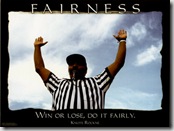In honor of the start of the Beijing Olympics, it would have perhaps made more sense for this week's 172nd edition of Blawg Review to have been  hosted by the China Law Blog. Having just hosted Blawg Review #162 a mere two months ago, however, a repeat performance is not in the cards. Instead, you get me, who knows little about China. I do plan, though, to watch copious amounts of Olympic coverage over the next two weeks. Accordingly, I bring you this Olympic-themed Blawg Review.
hosted by the China Law Blog. Having just hosted Blawg Review #162 a mere two months ago, however, a repeat performance is not in the cards. Instead, you get me, who knows little about China. I do plan, though, to watch copious amounts of Olympic coverage over the next two weeks. Accordingly, I bring you this Olympic-themed Blawg Review.
First, a little history lesson on the Olympic Games themselves, both ancient and modern (borrowed heavily from Wikipedia).
Legend has it that Heracles created the ancient Olympic Games and built the original Olympic stadium in honor of his father, Zeus. It is believed that the first Olympics took place somewhere between 884 BC and 704 BC. Thereafter, they became very important throughout ancient Greece. During the ancient times only young men could participate. Competitors were usually nude, as the festival was meant to be a celebration of the  achievements of the human body. Winners of the twenty different events became immortalized in statutes and poems, such as wrestler Milo of Croton. As the Romans gained hold in Greece, the Olympics gradually declined in significance. In 393 AD, after Emperor Theodosius I declared Christianity the official religion of the Empire and banned pagan rites, the Romans outlawed the Olympic Games as a pagan festival in 393 AD.
achievements of the human body. Winners of the twenty different events became immortalized in statutes and poems, such as wrestler Milo of Croton. As the Romans gained hold in Greece, the Olympics gradually declined in significance. In 393 AD, after Emperor Theodosius I declared Christianity the official religion of the Empire and banned pagan rites, the Romans outlawed the Olympic Games as a pagan festival in 393 AD.
The modern Olympic revival can be traced to the confluence of several events. First, in 1859, Evangelos Zappas, a wealthy Greek philanthropist, sponsored the revival of the first modern international Olympic Games, held in an Athens city square in 1859. The only countries that participated were Greece and the Ottoman Empire. Zappas held Games again in 1870 and 1875.
Secondly, in the mid-19th century, German archaeologists uncovered the ruins of Olympia, the site of the ancient Olympics.
At the same time, Pierre de Coubertin, a French aristocrat, concluded that the reason the French lost the Franco-Prussian war was because they had not received proper physical education (apparently, it had nothing to do with the post-Napoleonic warfare proficiency of the French). He also believed that he could improve international relations and curb warfare by having world youth compete in sports. In 1890, he decided that the formal revival of the Olympic Games would achieve both of his goals, and  founded the International Olympic Committee. That committee decided that the first IOC Olympic Games would take place in 1896 in Athens, in the country of their birth. The Panathenian stadium that was used for Zappas's Olympic Games in 1870 and 1875 was refurbished and reused for the Olympic Games held in Athens in 1896.
founded the International Olympic Committee. That committee decided that the first IOC Olympic Games would take place in 1896 in Athens, in the country of their birth. The Panathenian stadium that was used for Zappas's Olympic Games in 1870 and 1875 was refurbished and reused for the Olympic Games held in Athens in 1896.
The first modern Olympics in 1896 had 250 total athletes, the largest international sports event ever held until that time. Over the next two  weeks, more than 11,000 athletes will compete in Beijing.
weeks, more than 11,000 athletes will compete in Beijing.
Over the next many paragraphs, dozens of the best posts from around the blawgosphere will be featured and awarded appropriate medals for their blawging excellence.
In the labor and employment law events, gold medals are awarded to the following:
That's What She Said, for its reminder that events such as Office Olympics are key to finding balance and building camaraderie in the workplace.
The Delaware Employment Law Blog, for their topical post on dress codes in Beijing during the Olympics. A silver medal also goes to their post on "Desk Rage", which is apparently becoming all the rage in our workplaces.
 The Connecticut Employment Law Blog, for posting on a favorite topic of mine, workplace fairness.
The Connecticut Employment Law Blog, for posting on a favorite topic of mine, workplace fairness.
The Pennsylvania Labor & Employment Blog, for blaming the legal system and sexual harassment liability for removing any semblance of humor from the modern American workplace. A silver medal goes to Michael's post on DeJohn v. Temple University, which bizarrely held that the First Amendment limits a public university's ability to enforce its sexual harassment policy.
Rush on Business, for giving us the the real reason the Packers traded Brett Favre, to avoid any potential age discrimination liability.
The Manpower Employment Blawg, for informing us that "the EEOC is not in the business of judging anyone’s musical tastes."
The Workplace Prof Blog, for its post on a employer going to jail for not securing workers comp coverage for her employees.
The Word on Employment Law, for letting us know that sometimes PR is stronger than PC. A silver medal goes to WorkplaceHorizons, for its coverage of the same topic.
The HR Capitalist, for reporting on on Walmart's foray into employee mind control.
On the issue of the California Supreme Court's 7-0 ruling that under  California's Business and Professions Code section 16600, non-compete agreements are invalid even if they are written narrowly enough not to deprive persons of their right to pursue their profession, we have a five-way tie: World of Work, Trading Secrets, the Labor Employment Law Blog, The Business of Management, and What's New in Employment Law?. (Can you tell this is a very significant decision?)
California's Business and Professions Code section 16600, non-compete agreements are invalid even if they are written narrowly enough not to deprive persons of their right to pursue their profession, we have a five-way tie: World of Work, Trading Secrets, the Labor Employment Law Blog, The Business of Management, and What's New in Employment Law?. (Can you tell this is a very significant decision?)
The California Labor & Employment Blog, for its discussion of an employee vs. independent contractor bill pending in its home state.
George's Employment Blawg, on "blind" hiring practices.
Storm's California Employment Law, for brining a little bit of the Kosher to labor law.
Human Rights in the Workplace, for the Russian judge who ruled, "If we had no sexual harassment we would have no children." The silver medal goes to Abovethelaw for its report on the same issue.
The FMLA Blog, for its post on taking FMLA leave to care for a child with Tourette Syndrome.
In the non-labor and employment law events, gold medals are awarded to the following:
The Ohio Real Estate Blog, for proving that adverse possession really does exist outside of a law school Property exam.
Ohio Practical Business Law, for informing us on the very welcome trend of specialized commercial courts to handle business disputes.
The Ohio Family Law Blog, for bringing one for the guys.
Bob Sutton, for letting us know that it's ok to laugh at ourselves.
 The Res Ipsa Blog, for giving new law students ten helpful tips on how to succeed in law school. Let me add number 11, for any soon-to-be 1Ls that might be reading -- you got to law school by being successful up to this point in your life. Just keep doing what you've been doing and you'll be fine. And, above all else, shut out what everyone else around you is doing. Don't get caught up in how much others are studying, how early in the semester people start outlining, or how confident others appear when answering questions in class. Trust me, they know as little as you and are as scared. The sooner you figure that out, the more sane you'll be.
The Res Ipsa Blog, for giving new law students ten helpful tips on how to succeed in law school. Let me add number 11, for any soon-to-be 1Ls that might be reading -- you got to law school by being successful up to this point in your life. Just keep doing what you've been doing and you'll be fine. And, above all else, shut out what everyone else around you is doing. Don't get caught up in how much others are studying, how early in the semester people start outlining, or how confident others appear when answering questions in class. Trust me, they know as little as you and are as scared. The sooner you figure that out, the more sane you'll be.
On Point, for the best victory that is not a victory jury verdict of the week -- $1.5 million to a woman who sued a man for infecting her with a sexually transmitted disease.
Lowering the Bar, for its exposé on the ACLU's efforts to protect baggy pants and mullets.

Electronic Discovery Law, for reporting on a defendant's failure to preserve security camera footage of a slip and fall, and resulting adverse inference instruction the plaintiff received as a result of the court's conscience being shocked.
Traverse Legal, for their post explaining the treatment of works made for hire under the copyright act.
Drug and Device Law, for tying together Benjamin Franklin, Albert Einstein, and George Bush.
The MassLawBlog, for updating my urban dictionary with the term "whole paycheck."
The Irish blawg Cearta.ie, on three recent cases in which individual privacy trumped the right to a free press.
The Settle It Now Negotiation Blog, on why it's so hard to say I'm sorry.
The very long-titled Consumer Goods & Retail Industry Litigation Blog, for bringing to everyone's attention the incentives of being a whistleblower.
Susan Crawford, for being down on Comcast.
Lowering the Bar, for bringing the phrase, "Cloned-Dog-Mormon-Attack in the lexicon.
A Stitch in Haste, for reminding us of how little privacy we really have in this country. A silver medal to Simple Justice for the same topic.
Adam Smith, for reminding that people can still whine about being paid $175,000 a year for reviewing documents.
What About Clients?, for jumping on the anti Martindale-Hubbell bandwagon.
UsefulArts, for writing one for the gamers.
The Wall Street Journal's Law Blog, for introducing me to the phrase, "defamation of religion".
IPKat, for her picture of a cat wielding a light saber.
The Electronic Frontier Foundation, for reporting on my right to skip commercials with my beloved DVR.
Finally, Sentencing Law and Policy, for reminding me that there will always be stupid people in the world.
Blawg Review has information about next week's host, and instructions how to get your blawg posts reviewed in upcoming issues.

 said Lori Ann DiPalo, 36, the MTA Bridges and Tunnels officer. The
said Lori Ann DiPalo, 36, the MTA Bridges and Tunnels officer. The 



 The Connecticut Employment Law Blog
The Connecticut Employment Law Blog
 The Res Ipsa Blog
The Res Ipsa Blog
